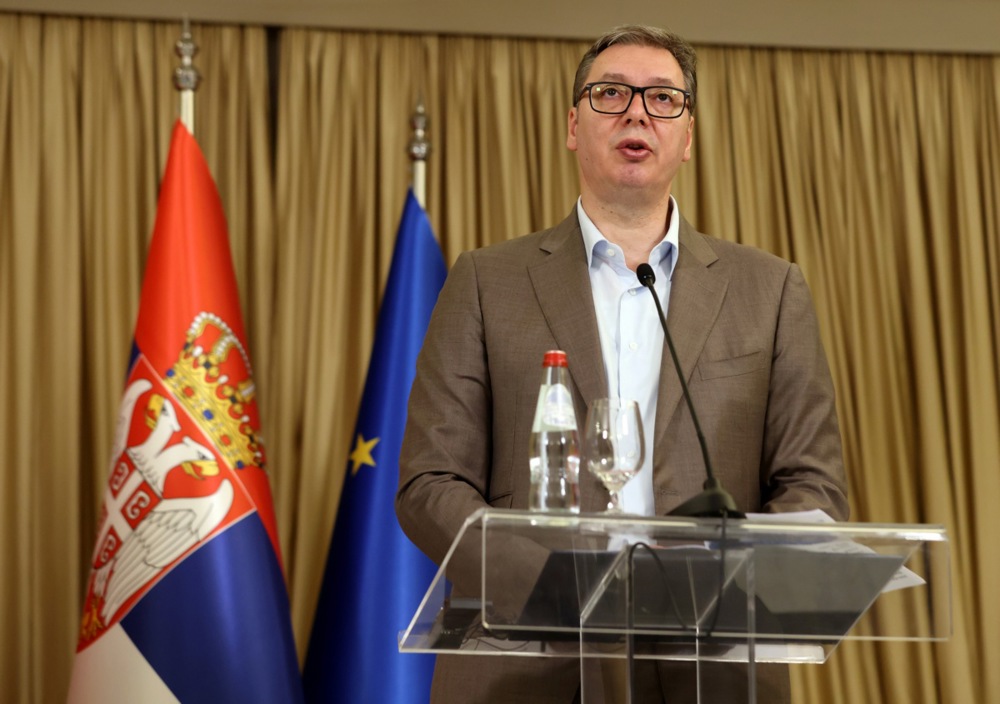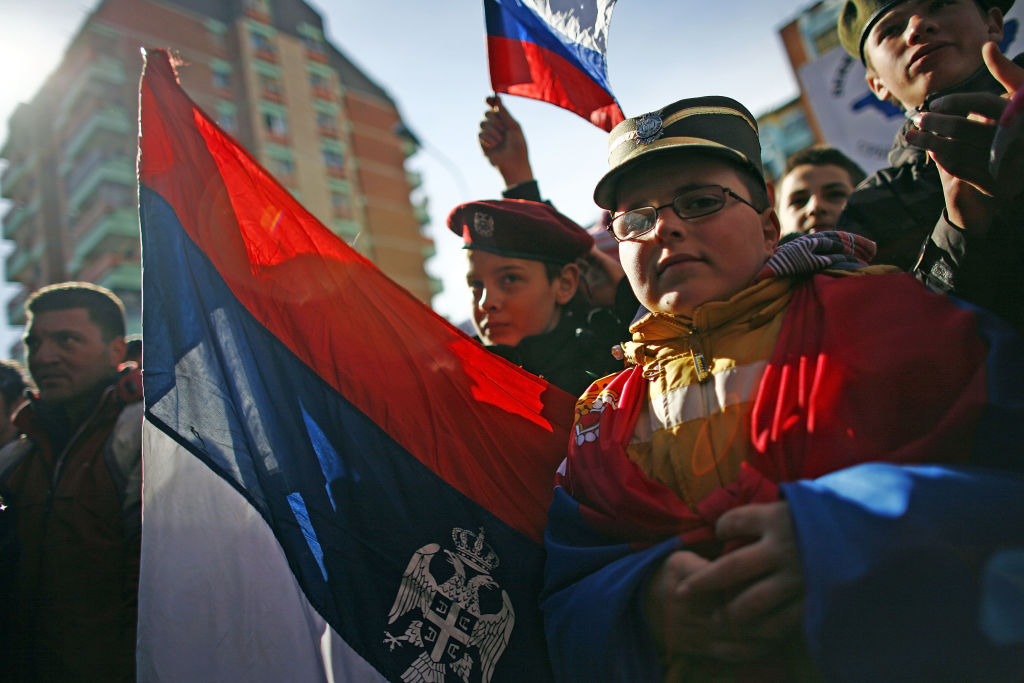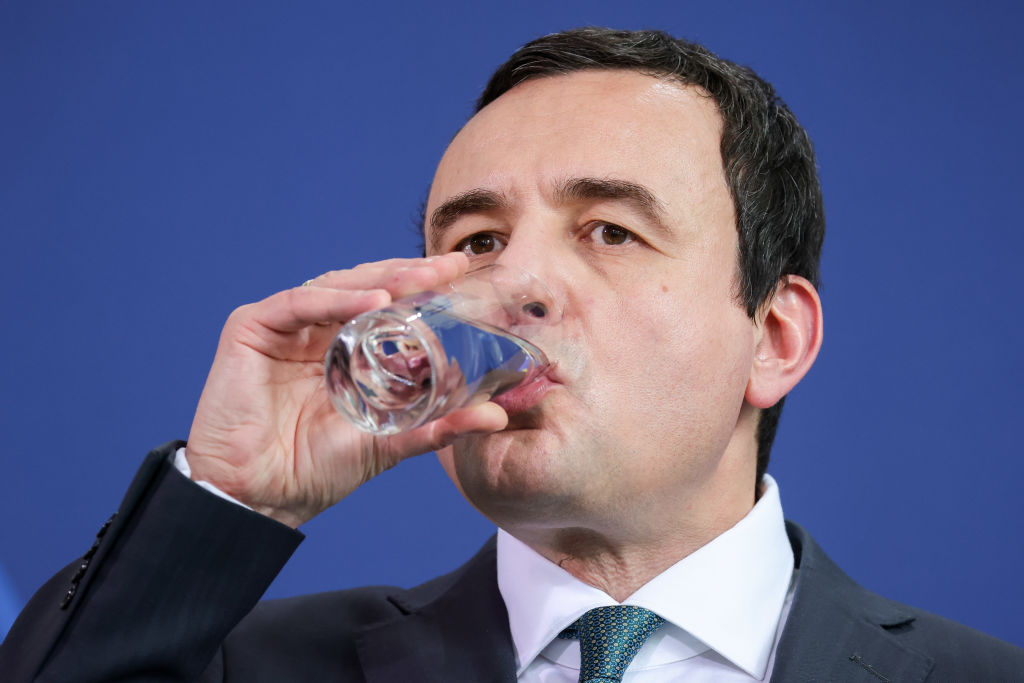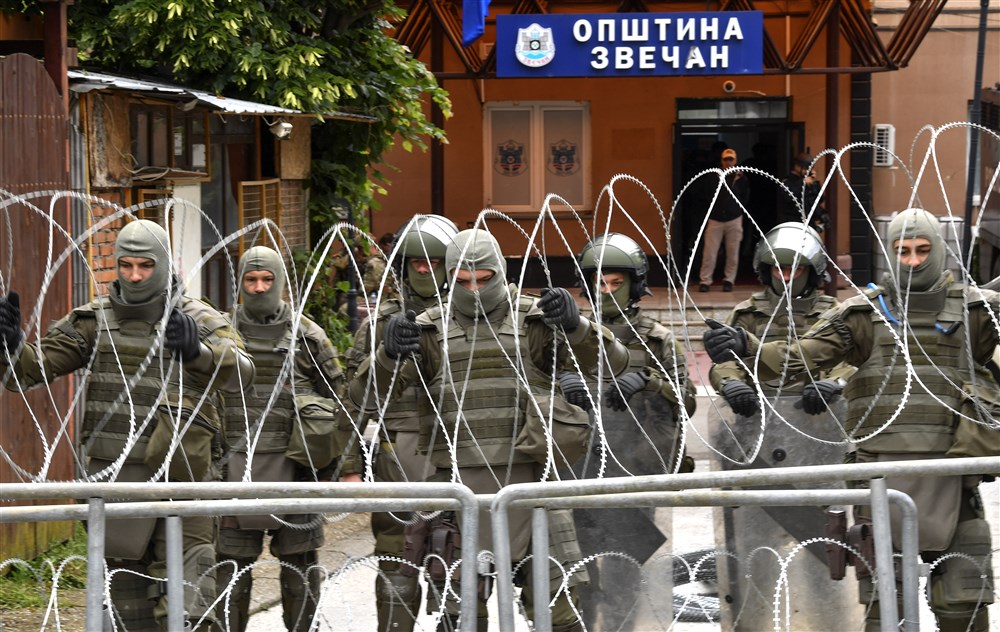An unidentified group of heavily armed Serbs attacked police in Kosovo on September 24, killing one and wounding two. Officers returned fire, killing three of the attackers. Kosovo and Serbia blame each other for the incident.
The latest escalation of violence saw a tense stand-off between the police and a large group of armed men at a monastery in a Serbian-dominated part of northern Kosovo.
Images published by Kosovo officials showed five heavily armed gunmen dressed in uniform barricading themselves inside the Banjska Monastery.
The incident began with what Kosovo called “an ambush” of a police patrol near the village of Banjska. Serbia claims that the men set up two trucks as a barricade but the police came to remove them, which resulted in the shootings.
The Kosovo-Serbian men fled to the well-known monastery nearby and barricaded themselves inside. The ensuing exchange of gunfire with the police lasted for several hours.
Government officials are not permitted to enter Orthodox buildings, including churches and monasteries, without first obtaining permission from the Serbian Orthodox church, according to Kosovan law.
Kosovo’s Prime Minister Albin Kurti claimed about 30 heavily armed men were involved in the attack.
His Minister of Internal Affairs Xhelal Svecla said several men were arrested and numerous weapons and equipment were seized.
It is unclear if all the suspected gunmen were arrested or if some had escaped.
According to police, at least three attackers were killed and one was captured during the gunfight. Four more civilian suspects were apprehended while allegedly carrying radio equipment and guns. Law enforcement also decided to seal the border crossings at Jarinje and Brnjak.
Kosovo called the ambush a “terrorist attack” and blamed the Serbian Government. “Organised crime with political, financial and logistical support from officials in Belgrade is attacking our country,” Kurti wrote on social media.
Kosovo President Vjosa Osmani claimed the violence was “orchestrated by Serbian criminal gangs” and described it as an attack on Kosovo’s sovereignty.
The local prosecutor’s office said in a statement: “At issue is an attack on the constitutional order of Kosovo, the preparation of terrorist acts or criminal acts against the constitutional order and security of Kosovo, the possession, control or unauthorised possession of weapons.”
Earlier today the #Serbian #Orthodox #Church in #Kosovo strongly and explicitely condemned today's armed assault by unidentified heavily armed assailants on #Kosovo police. The Church also denounced the forceful intrusion by armed individuals into the Banjska monastery,… pic.twitter.com/ItgkiBE0S3
— Dečani Monastery (@DecaniMonastery) September 24, 2023
President of Serbia Aleksandar Vučić said the police in Kosovo used excessive violence and did not need to kill the Kosovan Serbs. “According to our estimates, those few tens of Serbs were completely surrounded in an hour and 20 minutes.
“Obviously, this was done in co-operation with international forces and a brutal attack was carried out on them.
“We wondered why KFOR [a NATO-led international peacekeeping force in Kosovo] did not do this, [as] there would have been much fewer victims, but they gave ‘carte blanche’ to Kurti to, as they say, deal with the terrorists and kill as many people as possible,” Vučić claimed.
He further said he had warned Brussels and New York before that such a violent episode could occur. “Serbs, and not people from central Serbia, but within Kosovo and Metohija rebelled, not wanting to put up with Kurti’s terror any longer,” he added.
While Vučić said his country did “not justify the killing of an Albanian policeman”, he claimed that the police are targeting Serbs in North Kosovo, which is causing trouble.
Serbs have also taken offence at reports that Kosovo Special Forces took part in the operation while chanting songs honouring the Kosovo Liberation Office.
Miroslav Lajak, the EU’s Special Envoy for discussion between Belgrade and Pristina, said: “This terrible attack further emphasises the necessity of preventive diplomacy and dialogue.” He also stated that he would devote his full attention to finding a solution in the next few days.
In today's operation against armed terrorists, @Kosovo_Police confiscated hundreds of weapons, and ammunition, including heavy military equipment such as machine guns, grenades and more. Our police remains in close co-ordination with KFOR & EULEX. The operation is ongoing. pic.twitter.com/PfyXJYIqNw
— Albin Kurti (@albinkurti) September 24, 2023
The European Union has been making diplomatic efforts to smooth tensions between Kosovo and Serbia as both countries are eying accession to the EU.
Those efforts appear to be in vain and normalisation of relations between both countries seems ever more unlikely.
Earlier this year, ethnic tensions flared when officials in the capital Pristina forced Serbs in North Kosovo to use licence plates issued by Kosovo. Later, Kosovo wanted to install local mayors after the ethnic majority Serbs boycotted municipal elections en masse. Both occurrences led to violent clashes.
Shortly after the most recent Brussels-led talks fell through, Kurti claimed that the EU was far too biased towards Serbia and said that the bloc was unfairly putting too many demands on Kosovo.
The EU condemns in the strongest possible terms the hideous attack against Kosovo Police officers in Banjska/Banjskë in the north of Kosovo.
The responsible perpetrators must face justice. https://t.co/AU79eVg5Ix
— Josep Borrell Fontelles (@JosepBorrellF) September 24, 2023





